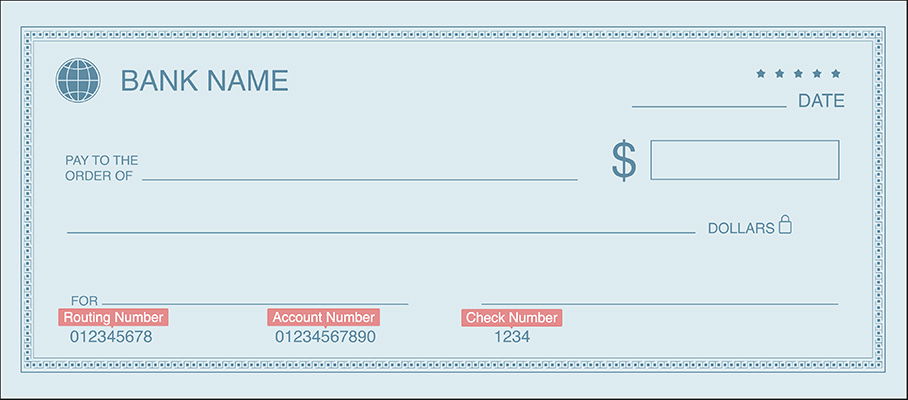Having a frozen bank account can be incredibly inconvenient—and even financially devastating in some cases. That’s why it’s crucial to understand what causes a bank to freeze an account and how you can prevent it from happening to you. Read on for more information about this important banking issue.

What is a frozen bank account?
A frozen bank account is a bank account that has been temporarily restricted from use. It means you cannot access or withdraw money from the account. This can happen for several reasons, such as non-payment of taxes, fraud investigations, or a default on loan payments.
When a bank freezes an account, the bank will send you a notification informing you of this action. Depending on the reason the freeze was initiated, there may be a timeframe in which you need to address the issue before your account is closed permanently.
You need to resolve whatever issue caused the freeze and provide any required documentation to prove it has been resolved. Once done, you can contact the bank and request that your account be unfrozen so you can start using it again. The timeframes for this process depend on what caused the freeze and how quickly all documents and paperwork can be provided.
If everything goes smoothly, you should have access to your accounts again in no time. However, if any issues remain unresolved after this period of time, then it’s likely that your accounts will remain frozen until further notice.
Why are bank accounts frozen?
There are several reasons why banks may freeze bank accounts, such as when there is suspicious activity or unpaid negative balances. In some cases, a government agency or court order may also be the cause of freezing a bank account.
When it comes to suspicious activity, banks must take action to protect their customers and prevent fraud. If a customer’s account shows signs of irregular activity or unauthorized transfers, the bank will likely freeze the account until the issue is resolved. This could include things like large withdrawals or frequent transfers to unfamiliar accounts.
Negative balances can also result in an account being frozen. If a customer fails to make regular payments on loans or credit cards linked to their bank account, they may find themselves with an insufficient balance and unable to access their funds. The bank will then freeze the account until all unpaid debts are paid off, and the balance is brought back into positive figures.
In certain cases, government agencies or courts may also intervene and impose restrictions on a person’s bank accounts due to criminal investigations, tax evasion claims or other legal matters. This can be done without warning and will remain in place until the case has been resolved, or any outstanding fines have been paid off.
How to Tell if Your Bank Account is Frozen
Having your bank account frozen can be a stressful and confusing experience. But, how can you tell if it’s happened to you? There are a few signs that indicate your bank account has been frozen.
First, one of the biggest clues is that you won’t be able to withdraw money from the account. This could mean you’re unable to pay bills or make purchases with your debit card. You might also find that any checks written on the account will come back as unpaid.
Another sign is if you receive an official notification from your bank informing you that they have blocked access to your funds. This type of notification usually includes language indicating a “freeze” or “hold” on the account due to certain legal restrictions or violations of their policies.
Finally, if none of these signs have occurred, but you suspect something is wrong, it’s best to contact your bank directly. A customer service representative should be able to tell you definitively whether your account has been frozen and what steps need to be taken next.
It’s important to do this quickly to resolve the issue and get access back to your funds as soon as possible.
How Long a Bank Account Can Remain Frozen
The length of time an account can be frozen will depend on why it has been frozen in the first place. If an account has been frozen due to fraud allegations, then it could remain frozen for several months while the investigation is ongoing.
On the other hand, if an account has been frozen due to non-payment of fees, then the freeze may only last for a few days or weeks until payment has been received.
In either case, you should contact your bank as soon as possible to find out more information about how long the freeze will last and what action needs to be taken to resolve the issue. The bank should also provide clear instructions on how funds can be accessed during this period.
However, there are also legal limits on how long an account can remain frozen. Depending on local laws, banks may not be allowed to keep an account frozen for longer than a certain amount of time. This is because banks need to take additional steps, such as obtaining court orders or filing criminal charges against account holders suspected of wrongdoing.
What to Do if Your Bank Account Is Frozen
The first step is to contact your bank and find out why the account was frozen. Different banks have different policies, so it’s important to understand what happened to address the problem quickly. The bank may need additional information from you before they can unfreeze the account.
Once you know why the account was frozen, you can work with the bank to restore access as soon as possible. Depending on the reason for freezing, this could involve providing additional information or documents, paying any outstanding fees or fines, or making arrangements regarding delinquent payments.
Potential Legal Consequences of a Frozen Bank Account
Depending on the details of your situation, a frozen bank account could result in multiple legal issues.
First, you may find that you are unable to access funds which are legally yours. This can be extremely frustrating and can lead to financial hardship. You may even face charges for bounced checks or overdraft fees if you do not take prompt action to unfreeze the account.
Furthermore, when a bank freezes an account, they are required by law to report it to credit bureaus. This could negatively impact your credit score and make it difficult for you to qualify for loans or other forms of credit in the future.
Banks must provide detailed information regarding why an account is frozen if requested by the account holder. If a bank does not provide this information or does not follow proper protocol when freezing an account, it could be considered grounds for a lawsuit against the bank itself.
How to Unfreeze Your Bank Account
The first step in unfreezing a bank account is understanding why it was frozen in the first place. Common reasons for an account being frozen include unpaid taxes or fees, or suspicion of fraudulent activity. If there are unpaid taxes or fees, contact your bank and make arrangements to pay them off as soon as possible. If you’re being investigated for fraud, work with the bank to clear up any confusion or provide any necessary documents.
Once you’ve determined the cause of the freeze on your account, contact your bank directly to find out how they will allow you to unfreeze your account. Depending on the reason it was frozen, they may require additional paperwork or verification before releasing any funds from the account. Make sure that you understand exactly what is required of you to get your funds released so that there aren’t any further delays in getting access to them again.
If everything is in order and all requirements have been met, then it should only be a matter of time before your funds are released and available for use once more. Be patient but don’t hesitate to reach out if there are any delays so that you can resolve whatever issue may be causing them as soon as possible.
Conclusion
Frozen bank accounts can be very frustrating. It limits your ability to access or use your funds and there are also fees associated with it.
Be sure to keep track of your finances so that you know what is going on with your accounts and take steps to address any issues quickly. Doing so will help ensure that you have access to your funds and can avoid any additional fees or charges.
Frequently Asked Questions
Is a frozen bank account the same thing as a closed account?
A frozen bank account is not the same as a closed bank account. A frozen account is when a person’s ability to access their funds or use the account for transactions has been restricted by the financial institution.
When you close an account, the funds are transferred out and you no longer have access to them – this is not the case with a frozen account. The main difference between the two is that closing an account results in permanently losing access to whatever money was in the account, while a frozen account means you just can’t make transactions until further notice.
What happens if I try to make a payment from a frozen account?
If you attempt to make a payment from a frozen account, the transaction will likely be declined. This occurs as the funds in a frozen account are not available for use until the account is unfrozen.
Is it possible to unfreeze a bank account without the bank’s help?
Unfreezing a bank account without the help of the bank can be a difficult undertaking. Many financial institutions have safeguards in place to ensure that accounts are not frozen accidentally. This makes it challenging for someone to unfreeze their own account on their own. That said, there are some methods that may be successful in unblocking an account without the need for bank intervention.
One potential way to unfreeze an account without the bank’s assistance is to make a payment from another source. If you have access to another financial account, such as a credit card or loan, you could use those funds to make a payment on your frozen account. This would free up the funds and allow access once again.



